BMW iX vs Mercedes EQA – Which car suits you better?
Compare performance, boot capacity, efficiency and price at a glance.
Find out which car is the better choice for you – BMW iX or Mercedes EQA?
Costs and Efficiency:
Price and efficiency are often the first things buyers look at. Here it becomes clear which model has the long-term edge – whether at the pump, the plug, or in purchase price.
Mercedes EQA has a clearly advantage in terms of price – it starts at 44200 £, while the BMW iX costs 71600 £. That’s a price difference of around 27334 £.
In terms of energy consumption, the advantage goes to the Mercedes EQA: with 14.40 kWh per 100 km, it’s distinct more efficient than the BMW iX with 17.80 kWh. That’s a difference of about 3.40 kWh.
As for range, the BMW iX performs a bit better – achieving up to 701 km, about 140 km more than the Mercedes EQA.
Engine and Performance:
Power, torque and acceleration are the classic benchmarks for car enthusiasts – and here, some clear differences start to show.
When it comes to engine power, the BMW iX has a significantly edge – offering 659 HP compared to 292 HP. That’s roughly 367 HP more horsepower.
In acceleration from 0 to 100 km/h, the BMW iX is clearly quicker – completing the sprint in 3.80 s, while the Mercedes EQA takes 6 s. That’s about 2.20 s faster.
In terms of top speed, the BMW iX performs noticeable better – reaching 250 km/h, while the Mercedes EQA tops out at 160 km/h. The difference is around 90 km/h.
There’s also a difference in torque: BMW iX pulls convincingly stronger with 1015 Nm compared to 520 Nm. That’s about 495 Nm difference.
Space and Everyday Use:
Cabin size, boot volume and payload all play a role in everyday practicality. Here, comfort and flexibility make the difference.
Both vehicles offer seating for 5 people.
In curb weight, Mercedes EQA is distinct lighter – 2045 kg compared to 2525 kg. The difference is around 480 kg.
In terms of boot space, the BMW iX offers distinct more room – 500 L compared to 340 L. That’s a difference of about 160 L.
In maximum load capacity, the BMW iX performs clearly perceptible better – up to 1750 L, which is about 430 L more than the Mercedes EQA.
When it comes to payload, BMW iX noticeable takes the win – 575 kg compared to 425 kg. That’s a difference of about 150 kg.
Who comes out on top?
Overall, the BMW iX shows itself to be outperforms in nearly all aspects and secures the title of DriveDuel Champion.
It convinces with the more balanced overall package and proves to be the more versatile choice for everyday use.
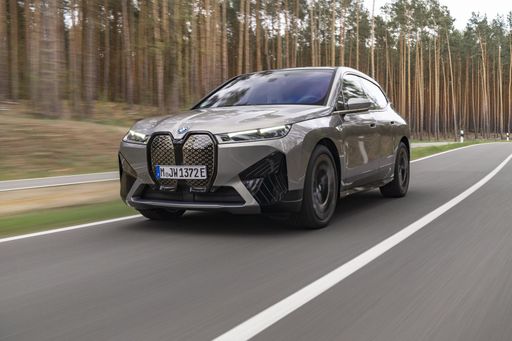
BMW iX
BMW iX
The BMW iX presents a bold step into the future of electric vehicles, combining eco-friendly performance with luxurious comfort. Its sleek design and state-of-the-art technology offer a driving experience that feels both modern and sophisticated. Inside, high-quality materials and an intuitive interface ensure that driver and passengers alike enjoy an immersive journey.
details @ press.bmwgroup.com
@ press.bmwgroup.com
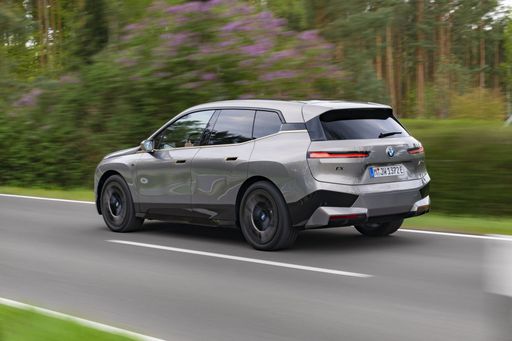 @ press.bmwgroup.com
@ press.bmwgroup.com
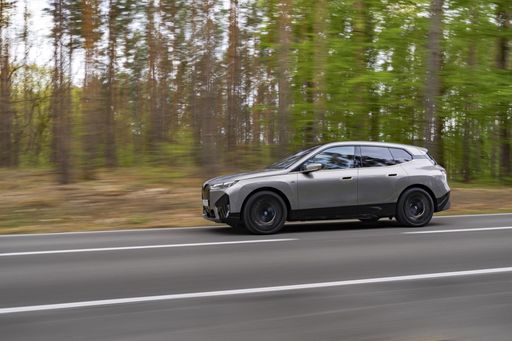 @ press.bmwgroup.com
@ press.bmwgroup.com
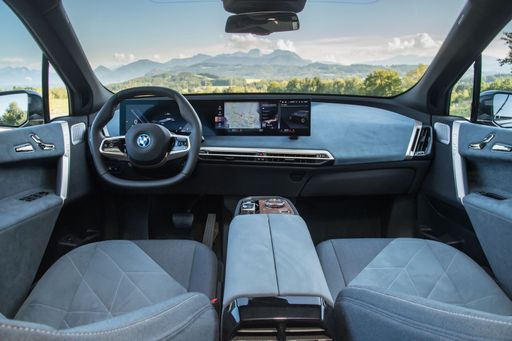 @ press.bmwgroup.com
@ press.bmwgroup.com
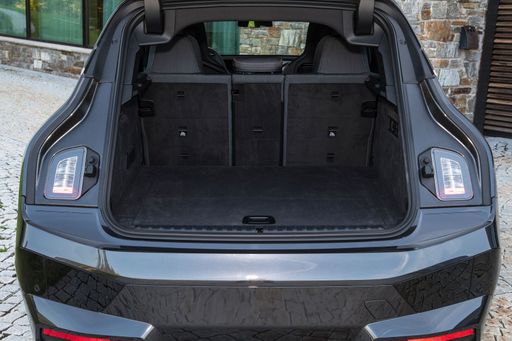 @ press.bmwgroup.com
@ press.bmwgroup.com
Mercedes EQA
The Mercedes-Benz EQA presents a refined blend of elegance and electric performance, perfectly suited for urban environments. Its sleek and modern design emphasises aerodynamic efficiency while providing a sumptuous interior that epitomises luxury and comfort. With advanced technology seamlessly integrated into its user-friendly interface, the EQA ensures a connected and enjoyable driving experience.
details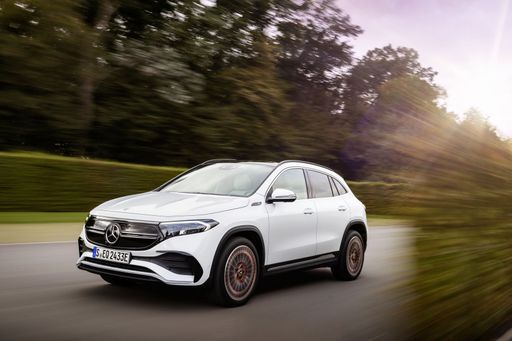 @ group-media.mercedes-benz.com
@ group-media.mercedes-benz.com
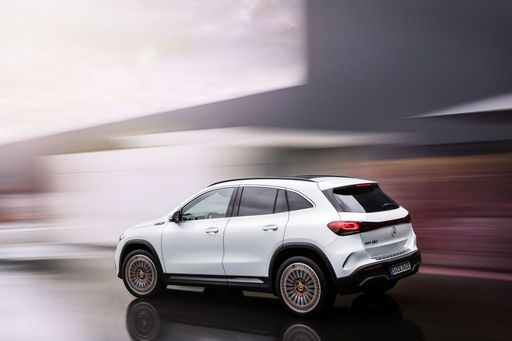 @ group-media.mercedes-benz.com
@ group-media.mercedes-benz.com
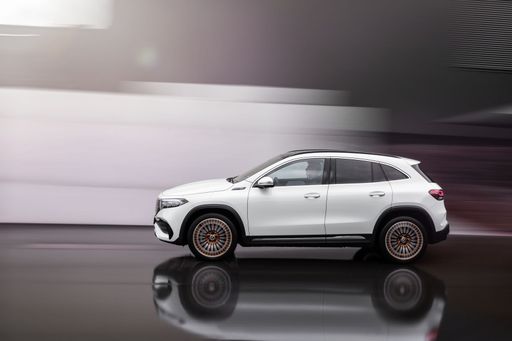 @ group-media.mercedes-benz.com
@ group-media.mercedes-benz.com
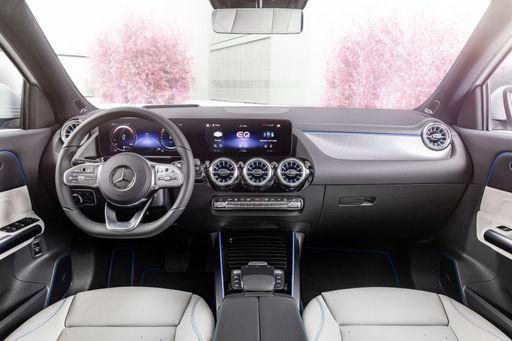 @ group-media.mercedes-benz.com
@ group-media.mercedes-benz.com

|

|
|
|
|
Costs and Consumption |
|
|---|---|
|
Price
71600 - 107100 £
|
Price
44200 - 57400 £
|
|
Consumption L/100km
-
|
Consumption L/100km
-
|
|
Consumption kWh/100km
17.8 - 20.6 kWh
|
Consumption kWh/100km
14.4 - 16.9 kWh
|
|
Electric Range
600 - 701 km
|
Electric Range
476 - 561 km
|
|
Battery Capacity
96 - 109.6 kWh
|
Battery Capacity
70.50 kWh
|
|
co2
0 g/km
|
co2
0 g/km
|
|
Fuel tank capacity
-
|
Fuel tank capacity
-
|
Dimensions and Body |
|
|---|---|
|
Body Type
SUV
|
Body Type
SUV
|
|
Seats
5
|
Seats
5
|
|
Doors
5
|
Doors
5
|
|
Curb weight
2525 - 2655 kg
|
Curb weight
2045 - 2115 kg
|
|
Trunk capacity
500 L
|
Trunk capacity
340 L
|
|
Length
4965 mm
|
Length
4463 mm
|
|
Width
1970 mm
|
Width
1834 mm
|
|
Height
1688 - 1695 mm
|
Height
1608 - 1613 mm
|
|
Max trunk capacity
1750 L
|
Max trunk capacity
1320 L
|
|
Payload
505 - 575 kg
|
Payload
425 kg
|
Engine and Performance |
|
|---|---|
|
Engine Type
Electric
|
Engine Type
Electric
|
|
Transmission
Automatic
|
Transmission
Automatic
|
|
Transmission Detail
Reduction Gearbox
|
Transmission Detail
Reduction Gearbox
|
|
Drive Type
All-Wheel Drive
|
Drive Type
Front-Wheel Drive, All-Wheel Drive
|
|
Power HP
408 - 659 HP
|
Power HP
190 - 292 HP
|
|
Acceleration 0-100km/h
3.8 - 5.1 s
|
Acceleration 0-100km/h
6 - 8.6 s
|
|
Max Speed
200 - 250 km/h
|
Max Speed
160 km/h
|
|
Torque
700 - 1015 Nm
|
Torque
385 - 520 Nm
|
|
Number of Cylinders
-
|
Number of Cylinders
-
|
|
Power kW
300 - 485 kW
|
Power kW
140 - 215 kW
|
|
Engine capacity
-
|
Engine capacity
-
|
General |
|
|---|---|
|
Model Year
2025
|
Model Year
2024 - 2025
|
|
CO2 Efficiency Class
A
|
CO2 Efficiency Class
A
|
|
Brand
BMW
|
Brand
Mercedes-Benz
|
Is the BMW iX offered with different drivetrains?
The BMW iX is offered with All-Wheel Drive.
The prices and data displayed are estimates based on German list prices and may vary by country. This information is not legally binding.
